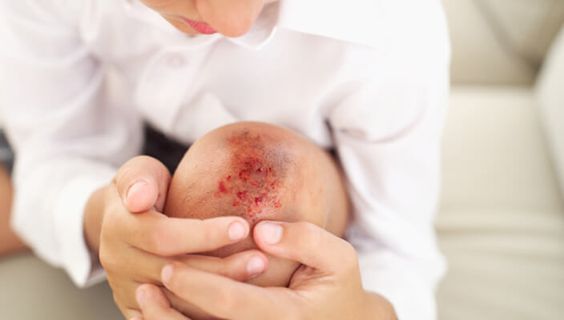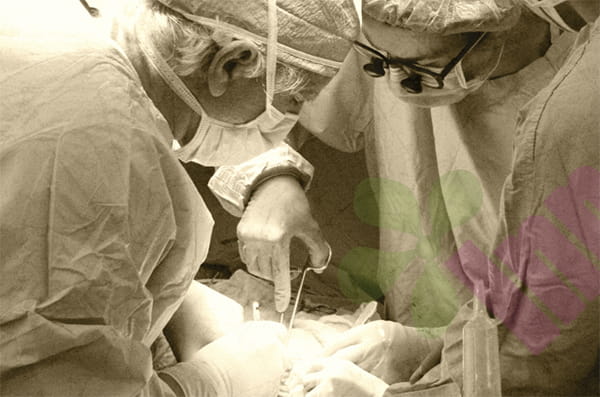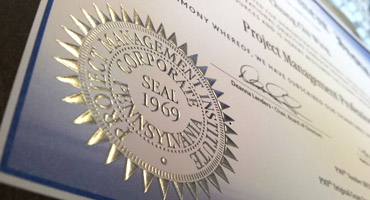Hyperhydration refers to the phenomenon that after the skin or tissue is damaged, too much water enters the tissue, causing tissue swelling, pain, and inflammatory response. During wound healing, overhydration may make it difficult for the wound to heal and may even lead to complications such as infection. Therefore, preventing and managing overhydration is very important.
Complications of maceration:
Maceration is a common clinical complication that poses challenges to chronic wound management. In chronic wounds, aging wounds in the inflammatory phase overproduce corrosive exudate, and if dressings do not promote effective exudate management, these noxious substances may seep into the wound peri-wound, leading to maceration and wound deterioration. The typical clinical presentation of maceration is a circular "halo," or wrinkling of the skin or around the wound, that appears as skin that is lighter than healthy skin. If left untreated, this damaged and exposed skin can easily break through light friction, corrosion, or the use of adhesives. In addition, breaks in macerated skin can lead to wound enlargement and serve as a potential entry point for opportunistic skin infections. Therefore, the treatment and management of impregnated wounds are very important to ensure that the wound heals as quickly as possible and prevents complications.
Ways to prevent overhydration :
Using a silicone foam dressing: A silicone foam dressing is a type of dressing used in wound care that absorbs exudate around a wound, reducing pain and discomfort. It can keep the wound clean and dry, thereby reducing the risk of infection and promoting wound healing. Absorbs exudate around wounds, thereby reducing the risk of scarring. Can help relieve wound pain, prevent infection, promote healing, and reduce the risk of scarring.
Avoid excessive activity: During wound healing, excessive activity may cause the wound to dehisce or become overhydrated. Therefore, strenuous exercise or other excessive activity that can cause overhydration should be avoided.
Using a bandage: Using a bandage can help control moisture in the wound area and avoid overhydration. While the wound is healing, a bandage or elastic may be used to secure it around the wound to control moisture in the wound area.
Avoid topical medications that contain alcohol: Certain topical medications that contain alcohol may irritate the wound area and lead to overhydration. Therefore, topical medications containing alcohol should be avoided, especially during wound healing.
Ways to deal with overhydration
If wound hyperhydration occurs, it should be treated promptly to avoid infection and other complications.
Here are a few ways to deal with overhydration:
Clean the wound area: Excessive hydration can lead to infection in the wound area, so the wound area should be cleaned immediately. Clean the wound area with warm water and soap, then dry it with a sterile cotton ball.
Applying pressure to the wound area: Applying pressure to the wound area with sterile cotton balls or a bandage can help control moisture and reduce pain and swelling.
Seek medical attention: If excessive hydration is severe, or accompanied by other symptoms (such as fever, pain, etc.), it is recommended to seek medical advice in time and seek a professional doctor's help.
In conclusion, preventing and managing overhydration is very important. During wound healing, you should keep the wound dry, avoid excessive activity, avoid topical medications that contain alcohol, and secure the wound area with a bandage or elastic to prevent overhydration. If the wound is overhydrated, the wound area should be cleaned immediately, the wound area should be compressed, and seek medical help from a professional doctor in time.
For more information on Innomed® Silicone Foam Dressing, refer to the previous articles. If you have customized needs, you are welcome to contact us; we will serve you wholeheartedly. At Longterm Medical, we transform this data by innovating and developing products that make life easier for those who need loving care.
Editor: kiki Jia
Date: June 6, 2023

 English
English عربى
عربى Español
Español русский
русский 中文简体
中文简体








